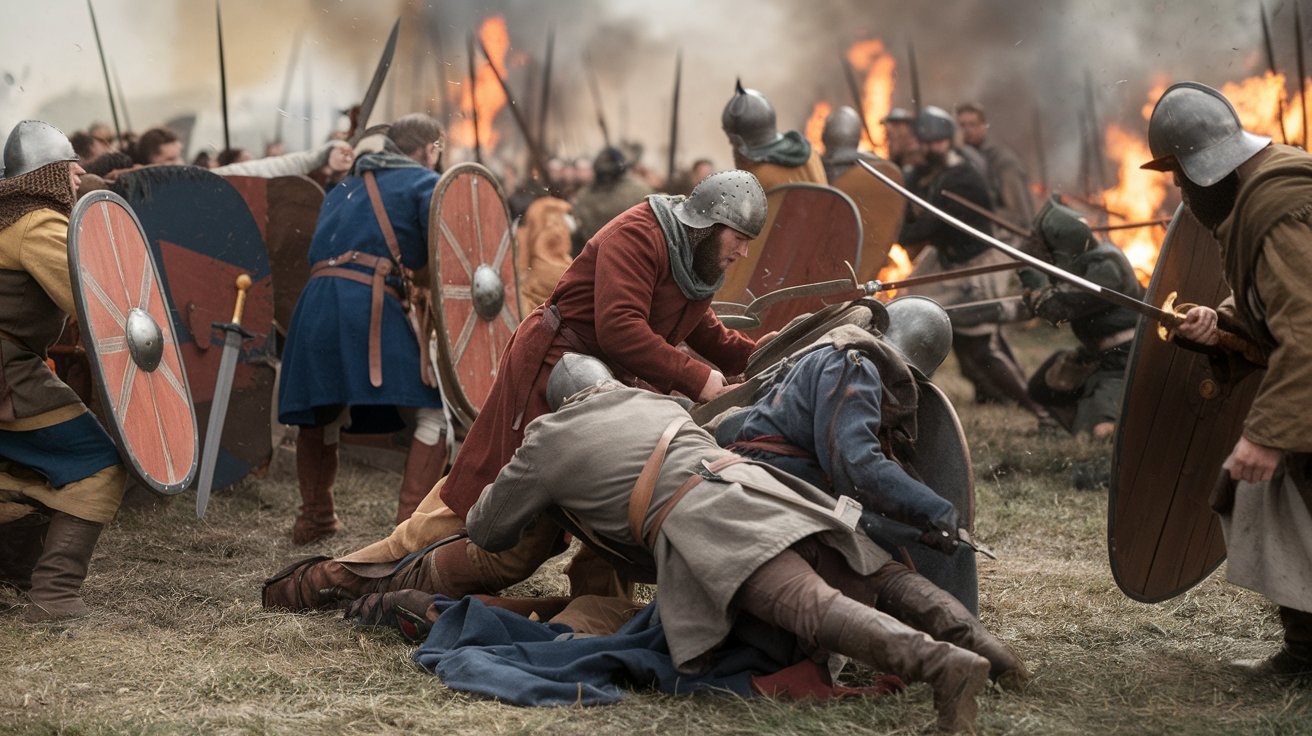
The War of L'Aquila was a significant conflict in Italian history, fought between 1423 and 1424. This war pitted the forces of Queen Joanna II of Naples against the condottiero Braccio da Montone. The battle centered around the city of L'Aquila, a strategic location in the Abruzzo region. Why did this war matter? It showcased the intense rivalries among Italian city-states and the influence of mercenary leaders. The conflict also highlighted the resilience of L'Aquila's citizens, who played a crucial role in defending their city. Want to know more? Here are 25 fascinating facts about the War of L'Aquila that will give you a deeper understanding of this historical event.
Key Takeaways:
- The War of L'Aquila was a major conflict between Naples and the Papal States, with the city of L'Aquila at the center. It had lasting impacts on Italy's political landscape and alliances.
- Notable figures like Queen Joanna II and condottieri Braccio da Montone played crucial roles in the war. The Treaty of L'Aquila officially ended the conflict, shaping Italy's future.
Background of the War of L'Aquila
The War of L'Aquila, fought in 1423-1424, was a significant conflict in Italian history. It involved the Kingdom of Naples and the Papal States, with the city of L'Aquila at the center of the struggle. This war had far-reaching consequences for the region.
- The War of L'Aquila was primarily a conflict between the Kingdom of Naples and the Papal States.
- The city of L'Aquila, located in central Italy, was the focal point of the war.
- The war began in 1423 and lasted until 1424.
- Queen Joanna II of Naples played a crucial role in the conflict.
- The Papal States were led by Pope Martin V during the war.
Key Figures in the War
Several notable figures emerged during the War of L'Aquila. Their actions and decisions significantly influenced the course of the conflict.
- Braccio da Montone, a renowned condottiero, led the Neapolitan forces.
- Muzio Attendolo Sforza, another famous condottiero, commanded the Papal troops.
- Queen Joanna II of Naples was known for her political maneuvering and alliances.
- Pope Martin V sought to strengthen the Papal States' influence in Italy.
- The war saw the involvement of various Italian city-states, each with its own interests.
Major Battles and Events
The War of L'Aquila witnessed several key battles and events that shaped its outcome. These moments were pivotal in determining the victor.
- The Battle of San Germano in 1424 was a decisive clash between the two sides.
- The Siege of L'Aquila was a prolonged and brutal event during the war.
- The capture of Braccio da Montone marked a turning point in the conflict.
- The intervention of Florence and Venice influenced the war's dynamics.
- The Treaty of L'Aquila, signed in 1424, officially ended the war.
Impact on L'Aquila and Italy
The War of L'Aquila had lasting effects on the city and the broader Italian region. These impacts were felt politically, economically, and socially.
- L'Aquila suffered significant damage and loss of life during the war.
- The city's strategic importance increased after the conflict.
- The war weakened the Kingdom of Naples, leading to internal strife.
- The Papal States emerged stronger and more influential in Italy.
- The conflict highlighted the complex web of alliances and rivalries in Italian politics.
Legacy of the War
The War of L'Aquila left a lasting legacy in Italian history. Its lessons and consequences continued to resonate for years to come.
- The war demonstrated the power and influence of condottieri in Italian warfare.
- It underscored the importance of alliances and diplomacy in medieval Italy.
- The conflict contributed to the eventual decline of the Kingdom of Naples.
- The war's outcome bolstered the position of the Papal States in Italian affairs.
- The War of L'Aquila remains a significant chapter in the history of L'Aquila and Italy.
Final Thoughts on the War of L'Aquila
The War of L'Aquila was a pivotal event in Italian history. It showcased the resilience of the people of L'Aquila and the strategic prowess of their leaders. This conflict wasn't just about territorial disputes; it was a clash of cultures, ambitions, and ideologies. The war's outcome had lasting impacts on the region's political landscape, influencing future alliances and power dynamics. Understanding these historical events helps us appreciate the complexities of human conflict and the enduring spirit of those who fight for their homeland. As we reflect on these facts, it's clear that the War of L'Aquila remains a significant chapter in the annals of history, offering valuable lessons on courage, strategy, and the relentless pursuit of freedom.
Frequently Asked Questions
Was this page helpful?
Our commitment to delivering trustworthy and engaging content is at the heart of what we do. Each fact on our site is contributed by real users like you, bringing a wealth of diverse insights and information. To ensure the highest standards of accuracy and reliability, our dedicated editors meticulously review each submission. This process guarantees that the facts we share are not only fascinating but also credible. Trust in our commitment to quality and authenticity as you explore and learn with us.
